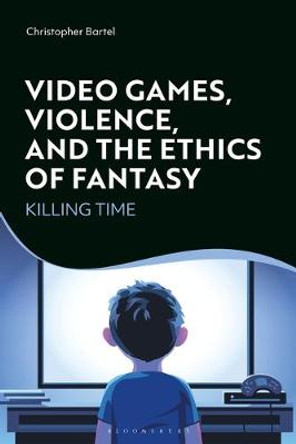Description
This book examines key issues in transnational cinema, film aesthetics, and Irish history through a reading of Stanley Kubrick's Barry Lyndon (1975).
About the Author
Maria Pramaggiore is Head of Media Studies at the National University of Ireland at Maynooth. She has published four books, two on Irish cinema, and one a co-authored textbook, Film: A Critical Introduction (2011; with Tom Wallis), now in its third edition.
Reviews
The book brings together a breadth of scholarship and an innovative reading of the film to offer new insights ... [which] will benefit and inspire serious scholars in their research. * Historical Journal of Film, Radio and Television *
Not only a welcome addition to the already bountiful field of Kubrick studies; it is also the sole monograph specifically addressing Barry Lyndon ... The publication is also a demonstration of the value of taking a wide-ranging approach to film research; it explicates in a clear and practical way how different perspectives and methodologies can be integrated to build a provocative and challenging analysis. The great strength of the book is the way the author weaves a web or network of interrelated elements-history, novel, biography, culture, colonialism, identity, gender. * Alphaville: Journal of Film and Screen Media *
A significant contribution to the Kubrick literature. Impeccably researched and eminently readable, Pramaggiore's book gives Barry Lyndon the full and detailed attention it deserves. * Robert Kolker, Emeritus Professor of English, University of Maryland, USA, and author of A Cinema of Loneliness, The Altering Eye, and The Cultures of American Film *
A serious piece of academic study giving in-depth analysis of a film which has rarely been given this level of (well deserved attention). Both intensive and expansive, full of interesting commentary and analysis, this book highlights unconsidered aspects of the film, showing Barry Lyndon to be on a par with Kubrick's other films-a thoughtful, philosophical film, rather than just a series of pretty pictures. * Richard Daniels, Stanley Kubrick Archivist, University of the Arts London, UK *
The critical promise that imbues this book-to make time as visible as the shape of the frame or the colors of the tableau-is brilliantly fulfilled in this superb work. A breakthrough in film analysis, and in the study of Stanley Kubrick. * Robert Burgoyne, Professor of Film Studies, University of St Andrews, UK, and author of The Hollywood Historical Film *
Whilst Pramaggiore is very good at illustrating and discussing the portraits and paintings that might have inspired Kubrick's compositions, she appreciates more importantly what is behind these civilised surfaces, and how Kubrick, like Thackeray in his novel, is delivering a lethal critique of social hierarchy and hypocrisy ... Forty years on, Barry Lyndon, she proposes, 'still has something important to say about image-making, culture and power.' Over the book's succeeding pages, she proceeds to demonstrate that importance with eloquence and authority -- Neil Sinyard, University of Hull, UK * www.neilsinyard.britishtelevisiondrama.org.uk *
Based on research carried out at the Stanley Kubrick Archive at London College of Communication, Making Time is important because it is the only monograph specifically focused upon Barry Lyndon. The publication is also a demonstration of the value of taking a wide-ranging approach to film research; it explicates in a clear and practical way how different perspectives and methodologies can be integrated to build a provocative and challenging analysis. The great strength of the book is the way the author weaves a web or network of interrelated elements-history, novel, biography, culture, colonialism, identity, gender-which together make up Barry Lyndon. * Alphaville *
Book Information
ISBN 9781441167750
Author Professor Maria Pramaggiore
Format Hardback
Page Count 224
Imprint Bloomsbury Academic USA
Publisher Bloomsbury Publishing Plc
Weight(grams) 476g











